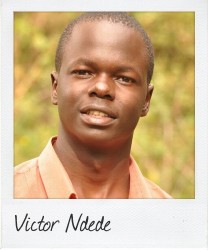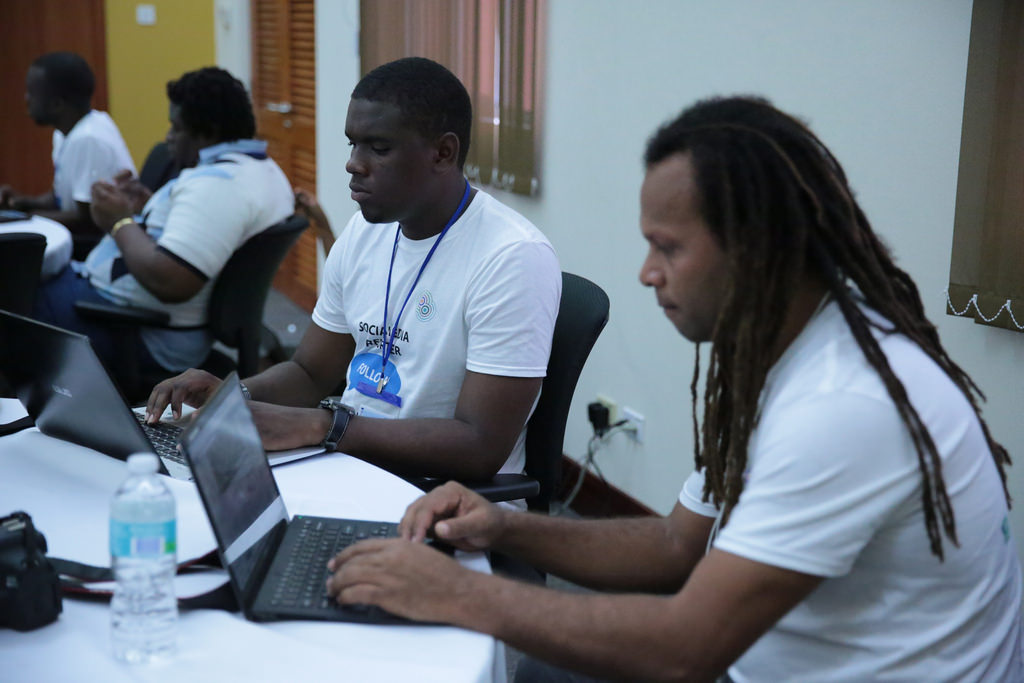“Media’s role in an electioneering period”
May 3rd, 2017 The media plays an instrumental role in any democracy, and as such the freedom of the media is perhaps one of the most visible indicators of a functioning democracy, writes Victor Ndede, 21, a Correspondent from Eldoret, Kenya, as he examines the fundamental role of the media in the electoral process.
The media plays an instrumental role in any democracy, and as such the freedom of the media is perhaps one of the most visible indicators of a functioning democracy, writes Victor Ndede, 21, a Correspondent from Eldoret, Kenya, as he examines the fundamental role of the media in the electoral process.
One of the greatest indicators of a sound democracy is a free press; equally, a good democracy is denoted by regular free, fair and verifiable elections. The interplay between the media and elections is one that cannot be ignored, especially in a country like Kenya where tensions mark every electioneering period. The 2007-2008 post-election violence holds its indelible place in the minds of many Kenyans as the worst electoral instigated violence.
The high-stakes elections have been witnessed ever since the country ushered in multi-party politics in 1992. From the outset of multi-party politics, the country was zoned based on ethnic affiliations to certain political parties. The implementation of our multi-party politics was based on a skewed ideology of “us-versus-them”. It originated in a past where there were high inequities in division of the national cake. The default setting of our politics needs no effort to see that it is a conflict-laden societal structure.
The conflict analysis of the electioneering process and how it is presented to the public by members of the fourth estate is the difference between a repeat violence and a peaceful electoral process. Noteworthy is the fact that media has always been accused of poor reportage on electoral conflicts. Reportage on the electoral process does not start on election day, but rather starts months before the elections, during the elections and after the elections.
The media has been accused of sensationalising the electoral process to the extent that it makes the process appear like a two-horse race. This in turn creates a scenario of “winner takes all”, which is largely to be blamed for the animosity that has been the order of the day in every electoral process. This form of reportage does not take cognisance of the highly centralised form of governance that has been a very inequitable system of sharing resources.
The main question that then surfaces is what role do journalists play in the electioneering process? One of the mistakes that journalists make is reporting a conflict in areas where the journalists have not visited prior to the elections. The folly in that approach to reporting is that the journalists will rarely if ever get the facts right. Reporting from the capital city of Nairobi about events happening upcountry is a very perilous form of journalism, as one fails to know the mood and attitudes of the people on the ground. The risk grows with the likelihood of further incensing an already tensed populace.
One temptation the Kenyan media has fallen prey to is the airing and printing of inflammatory and divisive remarks made by politicians in their raw form. In a country where the ghosts of post-election violence still haunt a majority of the population, the media’s airing of such remarks contributes heavily to repeat violence. The media houses in Kenya operate more as business entities in the rush to increase their viewership base, with total disregard for ethics. Hence, the more sensational a story is, the more viewers the media station gets.
The media has further been accused of engaging in brown-envelope journalism, which is largely to blame for the half-baked reporting that has been the order of the day on our screens and in print. Journalists collude with politicians to the extent that they only air and publish what their own political source has to say on a conflict, leaving out the crucial aspect of the other party’s view of the story.
Journalists should ensure that they focus their reportage on only the crucial issues that are fundamental to resolve a conflict, as opposed to those that maintain the status quo or escalate the conflict. A journalist should ensure that in the course of their work, they maintain a professional, objective and conflict-sensitive reporting style that focuses primarily on the facilitation of dialogue and reconciliation.
While the freedom of the press is a constitutionally guaranteed right and key tenet of a functional democracy, the media should refrain from escalating electoral conflict by poor reporting. The media is the now the fastest means to reach mass populations in the shortest time. This means that they are the custodians of peace by virtue of the assets of peace they hold. In any event, the lives of people in the country are in the hands of the media. Do not forget that the tongue is the smallest organ and yet it can burn an entire country down.
photo credit: CTA-EU Social reporters covering the WS1: How to creat a Successful Agribusiness Compagny via photopin (license)
………………………………………………………………………………………………………………
About me: I am an Associate Fellow of the Royal Commonwealth Society and a law student from Kenya with a passion to tell the Kenyan story in a Kenyan way, and invite the world to see Kenya through my eyes. I am a literature enthusiast and works as a judge at the Queen’s Commonwealth Essay Competition. I am a person who appreciates that there is beauty in diversity and strength in inclusivity.
…………………………………………………………………………………………………………………
Opinions expressed in this article are those of the author and do not necessarily represent the views of the Commonwealth Youth Programme. Articles are published in a spirit of dialogue, respect and understanding. If you disagree, why not submit a response?
To learn more about becoming a Commonwealth Correspondent please visit: http://www.yourcommonwealth.org/submit-articles/
…………………………………………………………………………………………………………………




